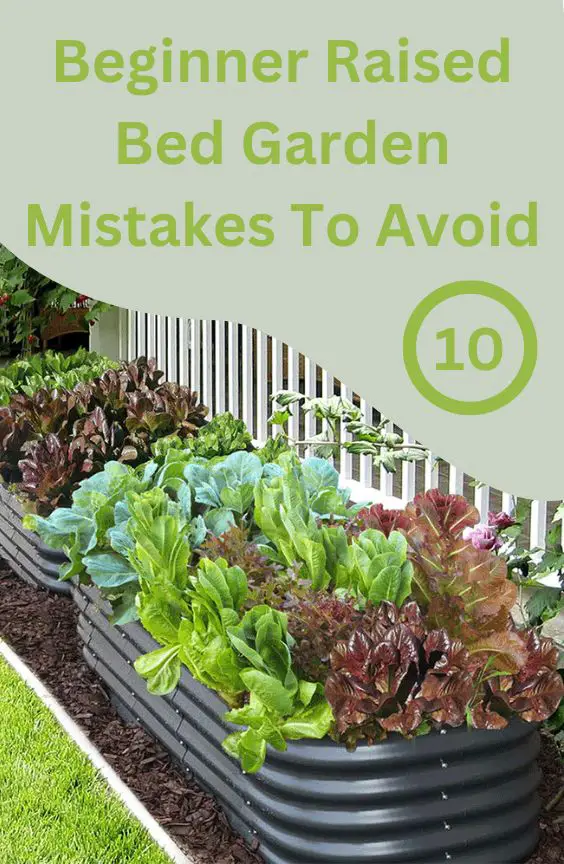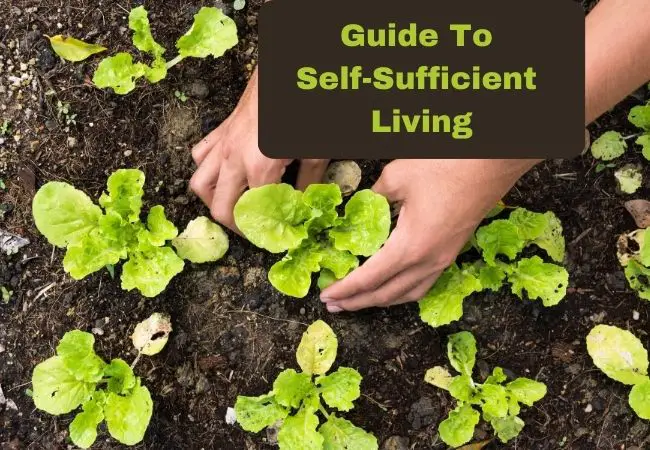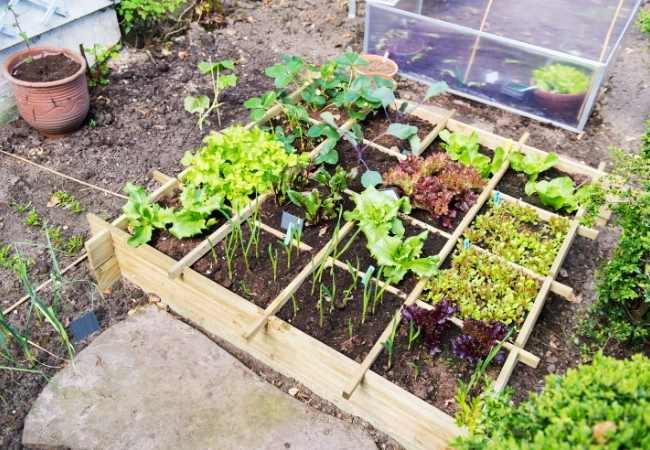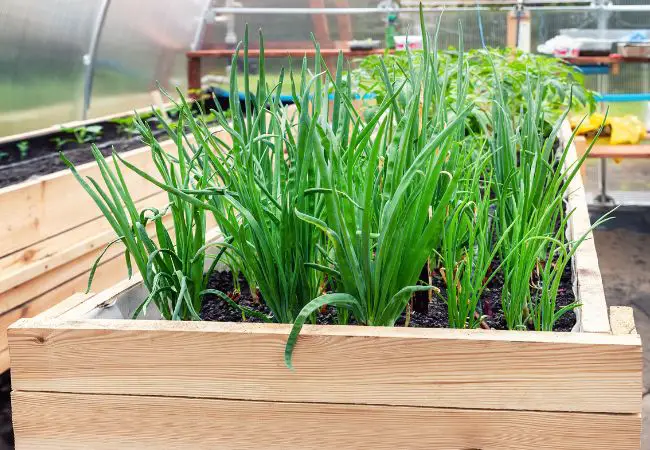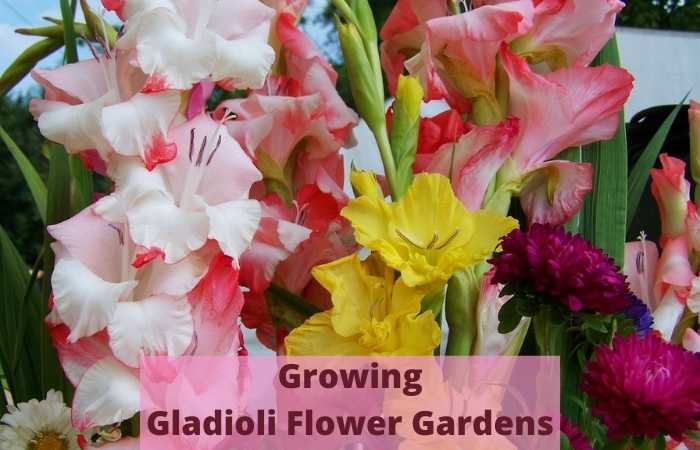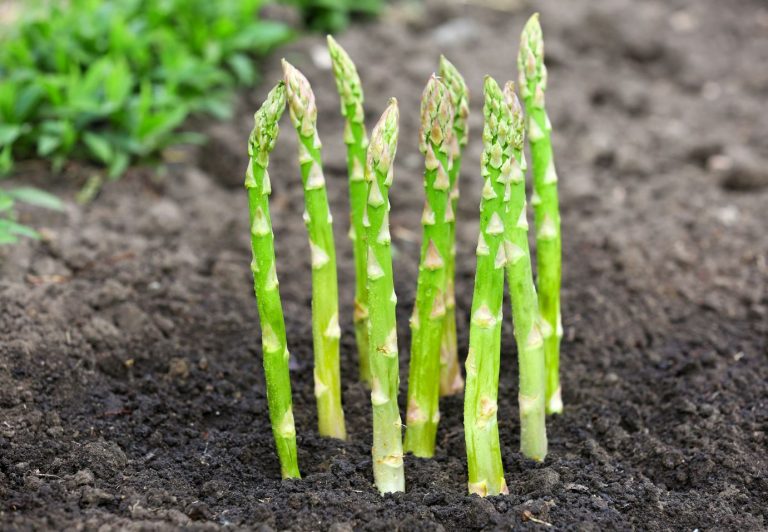10 Beginner Raised Bed Garden Mistakes to Avoid
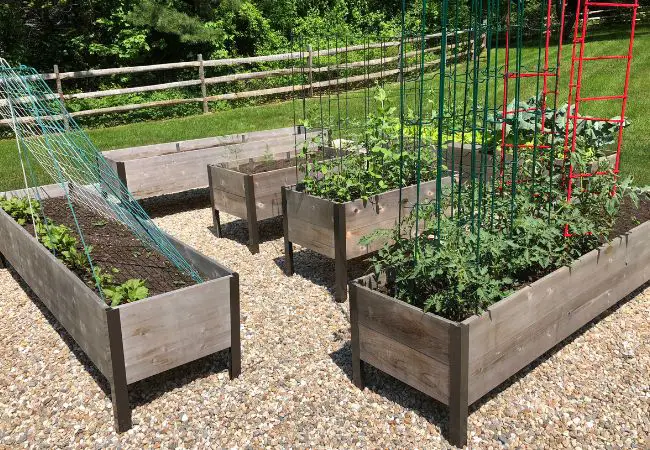
Beginner raised bed garden mistakes to avoid in order to have an enjoyable gardening experience. Raised bed gardening offers numerous benefits for beginners, including improved soil quality, better drainage, and easier access to planting and maintenance.
Beginner Raised Bed Garden Mistakes to Avoid
However, to ensure a successful gardening experience, it is crucial to avoid common mistakes that can hinder your efforts.
In this post, I will discuss ten beginner-raised bed garden mistakes and provide insights on how to avoid them, setting you on the path to a thriving garden.
I have used garden beds for so many years and they have been a tremendous addition to my garden.
Lack of Planning and Research
Before diving into raised bed gardening, it is essential to have a solid plan in place and conduct thorough research.
Start by selecting an appropriate location for your raised bed, ensuring it receives adequate sunlight and is accessible for maintenance.
Consider the size of the bed, keeping in mind the available space and the types of plants you wish to grow.
Research the specific requirements of plants suitable for your climate and the season to set realistic expectations.
Poor Soil Preparation
One of the keys to a successful raised bed garden is preparing the soil properly. Begin by testing the soil to determine its pH level and nutrient content. Based on the results, make necessary amendments to improve soil quality.
Incorporate organic matter such as compost, well-rotted manure, or peat moss to enhance fertility, drainage, and moisture retention. Proper soil preparation ensures a healthy growing environment for your plants.
Overcrowding Plants
It’s easy to get carried away when planting your raised bed garden, but overcrowding can have detrimental effects on plant growth and health.
Each plant requires sufficient space to grow and access sunlight, nutrients, and water. Research the recommended spacing for the plants you intend to grow and provide them with enough room.
Consider the height and growth habits of the plants to avoid overshadowing and competition for resources.
Neglecting Weed Control
Weeds are a common nuisance in any garden, and raised beds are no exception. Neglecting weed control can lead to stunted plant growth, reduced yields, and an unsightly garden.
Implement effective weed management practices, such as applying mulch around your plants. Mulch not only suppresses weed growth but also helps retain soil moisture and regulates temperature.
Regularly inspect your garden and promptly remove any weeds to maintain a healthy growing environment.
Inadequate Watering Practices
Proper watering is crucial for the success of your raised bed garden. However, beginners often struggle to find the right balance between overwatering and underwatering.
Different plants have varying water requirements, so it is essential to understand the needs of each species. Monitor the soil moisture regularly and water accordingly.
Consider using irrigation systems like drip irrigation or soaker hoses to provide consistent and targeted watering.
Failure to Provide Adequate Support
Certain plants, such as tomatoes, cucumbers, and beans, require support as they grow.
Neglecting to provide proper support can lead to broken branches, reduced yields, and overall plant stress.
Before planting, plan and build trellises, cages, or stakes to support climbing or vining plants. Regularly inspect and adjust the supports as the plants grow to ensure they remain sturdy and properly guide the plants’ growth.
Ignoring Pest and Disease Management
Pests and diseases can wreak havoc on your raised bed garden if not addressed promptly. Instead of relying on chemical pesticides, implement organic pest control methods.
Encourage beneficial insects, such as ladybugs and praying mantises, to inhabit your garden and control pests naturally.
Regularly inspect your plants for signs of infestation or disease and take appropriate action, such as removing affected plant parts or applying organic pest control solutions.
I often use a neem oil spray to deal with most pests. Learn how to do so in this post on how to use neem oil properly.
Lack of Crop Rotation
Crop rotation is an essential practice that beginners often overlook. Growing the same type of plant in the same spot year after year can deplete the soil of specific nutrients and increase the risk of disease buildup.
To avoid this, plan and implement crop rotation in your raised bed garden. Rotate plants from different families to prevent nutrient imbalances and control pests and diseases naturally.
Keep a record of your planting schedule and follow a rotation plan that spans several years.
Failure to Maintain Regular Care and Monitoring
A thriving raised bed garden requires consistent care and monitoring. Neglecting regular maintenance can lead to missed opportunities to address issues promptly and ensure optimal plant growth.
Make it a habit to inspect your garden regularly, checking for signs of stress, nutrient deficiencies, or diseases. Pay attention to the condition of the soil, watering needs, and overall plant health.
By being proactive, you can nip problems in the bud and maintain a healthy and productive garden.
Lack of Patience and Adaptability
Gardening, especially for beginners, requires patience and adaptability. It takes time for plants to grow, produce, and reach their full potential.
Avoid the mistake of expecting instant results and be patient with the natural pace of growth. Additionally, be open to adapting your gardening practices based on the needs of your plants and the challenges you may encounter.
Learn from your experiences, be willing to experiment, and embrace the learning process. I have found that some of the things that work well for other gardeners don’t work for me and I have to adapt.
Final Thoughts on Garden Beds
Raised bed gardening can be a rewarding experience for beginners, but it’s important to avoid common mistakes that can hinder your progress.
By conducting proper planning and research, preparing the soil adequately, avoiding overcrowding, implementing weed and pest control measures, and practicing proper watering techniques, you can set the foundation for a successful garden.
Remember to provide support to your plants, practice crop rotation, and regularly monitor and care for your garden.
With patience, adaptability, and a willingness to learn from your mistakes, you’ll be well on your way to enjoying the bountiful harvests and beauty of your raised bed garden.
I hope this post on beginner raised bed garden mistakes to avoid was helpful and you will have a pleasant experience adding garden beds to your garden. If you love gardening, follow me on Multigardening Pinterest for more awesome gardening posts.
